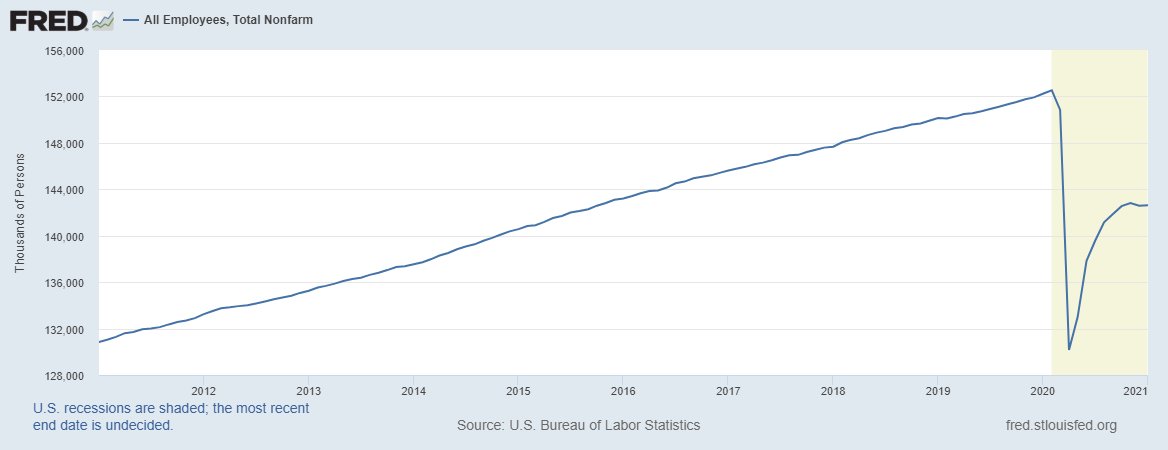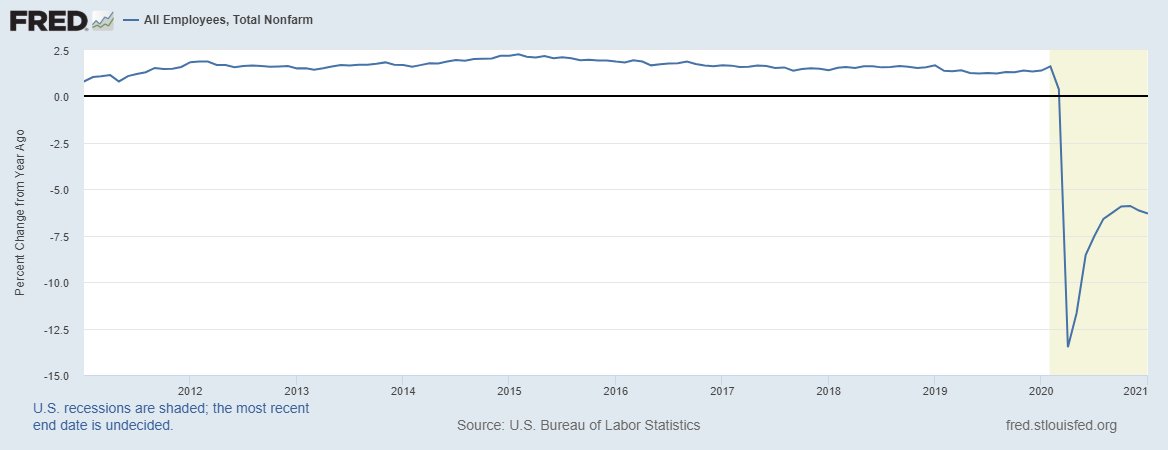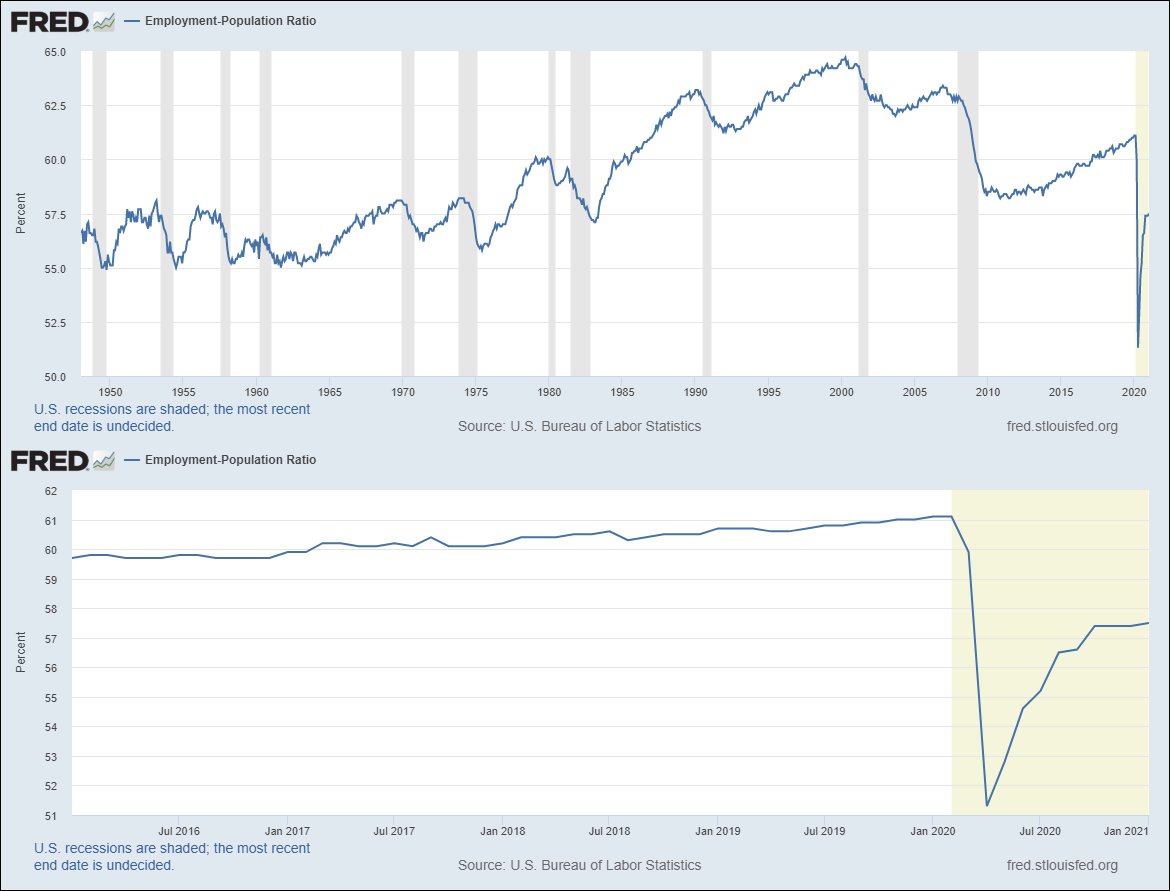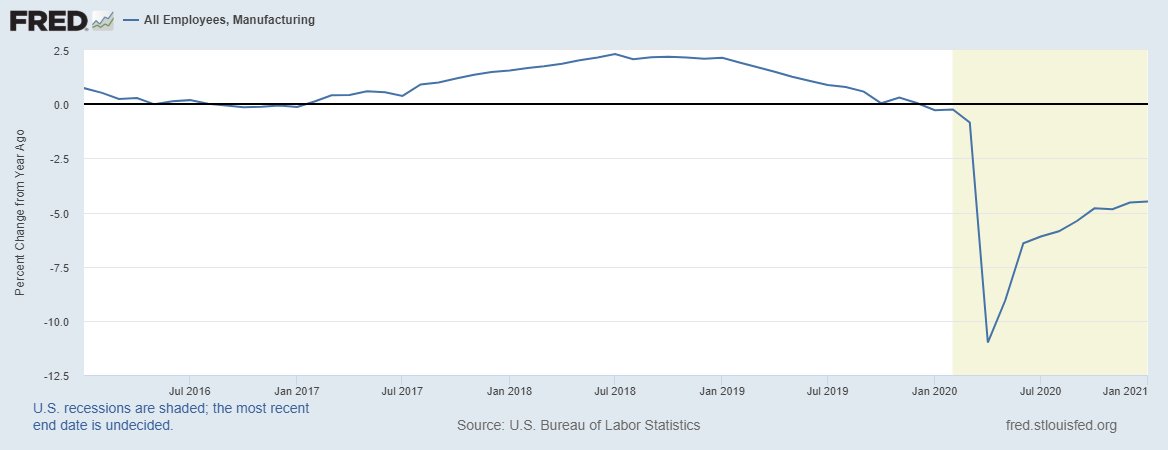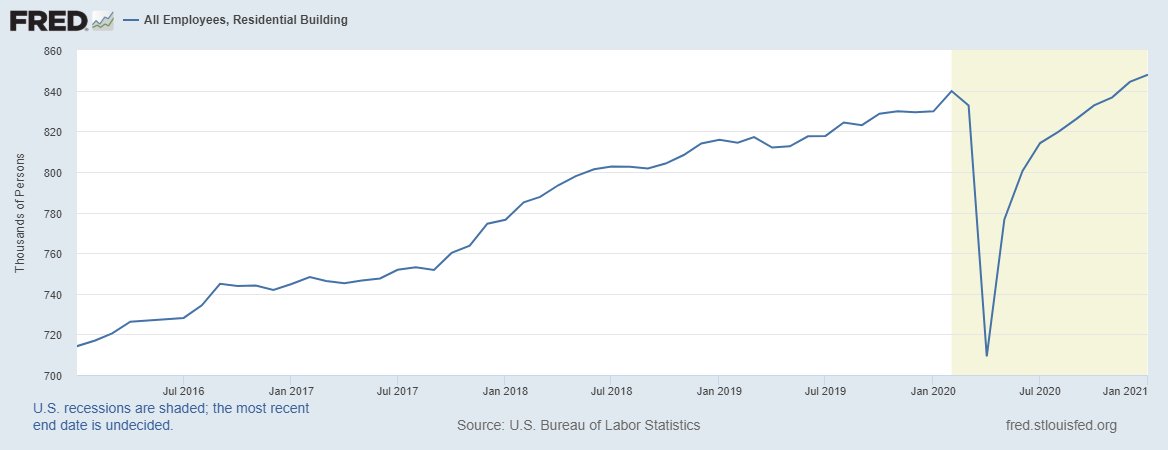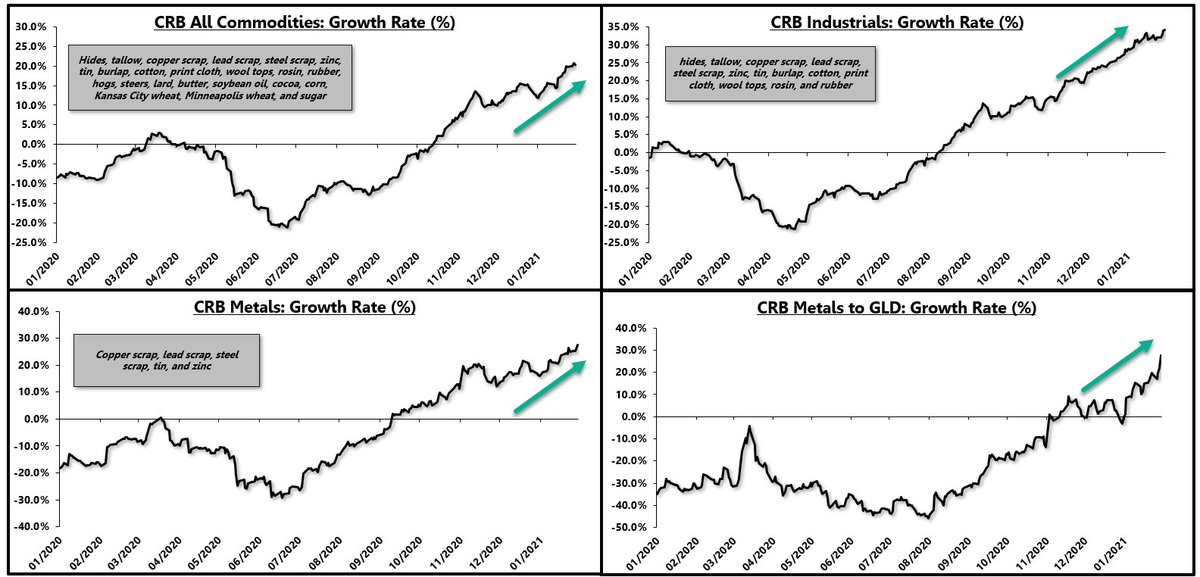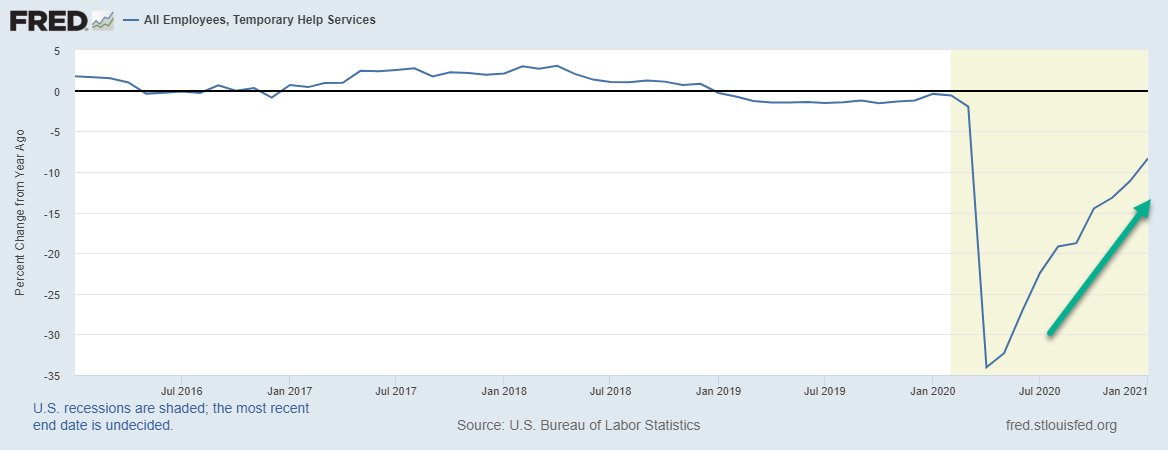An overview of the jobs report and some thoughts on why the market doesn't "care" that much about headline "beats" or "misses"
(Thread)
1/
(Thread)
1/
To start, we added just 49k jobs & are still millions of jobs shy of the pre-COVID peak
This is very bad news & something that will exacerbate the long-term structural disinflationary trends in the economy
It is also very bad for society if too many people are not working
2/
This is very bad news & something that will exacerbate the long-term structural disinflationary trends in the economy
It is also very bad for society if too many people are not working
2/
In Y/Y growth rate terms, the vector is rolling over which is also bad news. The vector is higher from April-May, but the deterioration in labor conditions is concerning for the long-term economy.
3/
3/
Lak @businesscycle (as always) does a great job of highlighting the labor progression relative to the GFC.
https://twitter.com/businesscycle/status/1357693704933429251?s=20
4/
https://twitter.com/businesscycle/status/1357693704933429251?s=20
4/
Some more bad news before the good and why the market doesn't care much about the short-term stalling of the labor market.
The LFPR fell in January and remains at decades lows.
Horrible news.
5/
The LFPR fell in January and remains at decades lows.
Horrible news.
5/
My preferred measure, the employment-population ratio, is also disastrous on a long-term basis but edged slightly higher in January.
Structural low-wage pressure will be a lasting issue.
6/
Structural low-wage pressure will be a lasting issue.
6/
Manufacturing jobs declined in January but the RoC is still steadily higher.
We are starting to get to the good news part.
7/
We are starting to get to the good news part.
7/
Other cyclical areas - residential building - shows job gains that exceed the pre-COVID peak.
Is this a short-term demand-pull-forward? Probably.
But the residential housing market is a high-velocity sector so heavy construction will help in the near term for nGDP growth.
8/
Is this a short-term demand-pull-forward? Probably.
But the residential housing market is a high-velocity sector so heavy construction will help in the near term for nGDP growth.
8/
The economy is in a major cyclical upturn, centered around manufactured goods thanks to a demand-shift after COVID and due to the short-term surge in hosing.
We see this in the growth rate of commodities.
Big upturn that isn't over yet.
9/
We see this in the growth rate of commodities.
Big upturn that isn't over yet.
9/
Following - average hours worked in the manufacturing sector, despite the decline in headcount, rose in January and the RoC in growth is straight higher.
10/
10/
As analysts, we have to balance the long-term, secular trends within the multi-quarter or multi-year fluctuations in growth/inflation.
This report highlighted the structural challenges in the economy that will not be solved overnight, nor upon some magical "reopening" date.
12/
This report highlighted the structural challenges in the economy that will not be solved overnight, nor upon some magical "reopening" date.
12/
There is plenty to be bearish about and in the long-term, rates will reflect the reality of decelerating nGDP.
In the short-term, however, we have to see the cyclical rebound for what it is.
Cyclical. And an upturn.
13/
In the short-term, however, we have to see the cyclical rebound for what it is.
Cyclical. And an upturn.
13/
The bond market will regain its footing, only when we see a clear pivot in a majority of leading cyclical indicators.
This report didn't change much on that front, which is why it shouldn't be much of a surprise to see bonds chop around - higher, lower, then higher.
14/
This report didn't change much on that front, which is why it shouldn't be much of a surprise to see bonds chop around - higher, lower, then higher.
14/
Next week, long bonds will go right back to trading on the cyclical trends.
My two cents.
(end)
15/15
My two cents.
(end)
15/15

 Read on Twitter
Read on Twitter